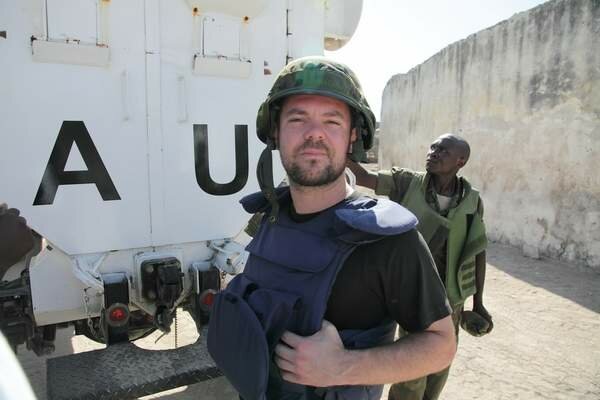African’s forgotten nation (OPINION)
 Iraq had its surge. Afghanistan is poised to experience one — a deluge of American forces sent to fight extremists ostensibly followed by a wave of nation-building.
Iraq had its surge. Afghanistan is poised to experience one — a deluge of American forces sent to fight extremists ostensibly followed by a wave of nation-building.
Meanwhile, in the Horn of Africa, Somalia is about to turn the calendar on its 18th year of civil war. Islamic insurgents linked to al-Qaida control most of the country. While millions of Somalis suffer, hundreds of foreign fighters from Pakistan, Afghanistan, Chechnya and other hot spots are in Somalia training rebels on how to export their terror.
Should we be scared? Probably not. Should we be outraged that nothing is being done? Definitely.
I recently spent a week in Mogadishu, Somalia’s beleaguered seaside capital, and saw a post-apocalyptic wasteland where people are desperate for peace. Hundreds of thousands have fled the city since al Shabab, a hard-line Islamic insurgent group, launched a new offensive against the government in May.
Crumbling shells of bullet-riddled buildings line nearly every street. Their faded facades, at once beautiful and haunting, reveal traces of Italian colonial architecture. Trees and tall grass grow through destroyed roofs. Since humanity apparently has no use for this city, nature is gladly reclaiming it.
At a hospital run by the African Union, hundreds of residents line up each day to receive treatment for bullet wounds and shrapnel injuries. Many have lost limbs when errant mortars explode in populated areas.
Daily fighting throughout the city routinely kills civilians. Yet Somalis who do not have the means to flee the city continue to live in Mogadishu and hope that the next stray bullet or mortar shell will not strike them or their loved ones.
“Mogadishu is dying,†one resident told me. “All the people are finished.â€
More than three million people have been displaced since the fighting began in January 1991. At least a million have died as a result of the war and resulting famine. And yet the Somali conflict doesn’t even get the most attention in Africa, let alone the world.
The war in Somalia has gone on twice as long as the conflict in mineral-rich Congo, where 17,000 United Nations troops, the largest peacekeeping mission in the world, are clustered in the eastern region, which is smaller than Northern California.
Three times as many people have died in Somalia as in the “genocide†in Sudan’s Darfur region. But movie stars such as George Clooney, Mia Farrow and Angelina Jolie have lobbied to keep Darfur on the national agenda.
Without the mineral resources of Congo, the star power of Darfur, the oil of Iraq or the direct terrorist threat of Afghanistan, Somalia is left to languish with a besieged force of 5,000 Ugandan and Burundian peacekeepers that controls only a few city blocks of Mogadishu.
A couple hundred U.S. Marines could easily secure the capital. The 30,000 troops that President Barack Obama just pledged to Afghanistan could probably bring peace to the whole country. But America has little appetite for intervention in the Horn of Africa. Remember “Black Hawk Down� That ill-fated 1993 mission to take out Somali warlords and deliver humanitarian aid that ended in 18 dead U.S. soldiers, effectively ended America’s adventures in Somalia.
If Somalia won’t see American boots on the ground anytime soon, the international community should at least seriously consider alternatives. A well-funded, U.S.-backed U.N. peacekeeping force would help. Perhaps a joint U.N.-African Union force like the one in Darfur.
Only the threat of millions of dollars in lost business due to pirate attacks has the world talking about intervening in Somalia, and then only to protect the shipping lanes off the coast, not the people on land.
People like Hamdi Bootan. She has shrapnel embedded in her leg from a mortar that recently hit her house killing her nephew and three neighbors.
“The war is not good,†she told me. “We are begging God for it to end.â€
Begging Obama might do more good.
Matt Brown grew up in Santa Rosa and graduated from Cardinal Newman High School in 1997. He is currently a freelance journalist based in Nairobi, Kenya.
Comments
comments
 Calendar
Calendar






































